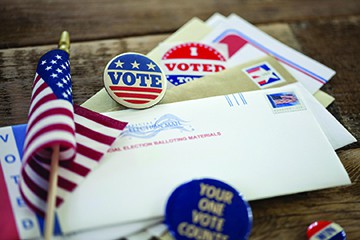By Erin Petenko/VTDigger
The Vermont Supreme Court issued a decision Friday, Jan. 20, in favor of Montpelier allowing noncitizens to vote in its local elections.
The court ruled that the Vermont Constitution does restrict voting in statewide contests to citizens.
Montpelier City Council President Jack McCullough told VTDigger that the initiative began when town residents noticed that it was “not fair” that some noncitizen residents who paid taxes and participated in the community “were not allowed to vote on on the local elections and the local issues that affected their lives.”
About 11,000 Vermonters are not United States citizens, according to the Census.
Montpelier voters supported a charter change to allow noncitizens to vote in local elections by an almost two-to-one margin in 2018, but the measure has since had a long journey toward implementation.
The state Legislature approved the change in 2021, only for Gov. Phil Scott to veto the measure. The Legislature then overturned Scott’s veto that same year.
Last year was the first time that noncitizens turned out to vote in Montpelier elections, according to Seven Days. John Odum said that nine noncitizens voters are currently registered with the city, and five noncitizen voters participated in last year’s Town Meeting Day votes.
McCullough said the process was “complicated” because the city clerk must maintain a separate list of who can vote in local elections.
In April 2022, a Washington County Superior Court judge rejected the plaintiff’s arguments that noncitizen voting was a violation of the Vermont Constitution. Friday’s Supreme Court decision upholds that ruling.
The Supreme Court ruled that the parties had standing to challenge the charter change because eligible voters had an “interest” in ensuring the voter pool was constitutional to “preserve the effectiveness of their vote.” But when it comes to the legality of the charter change itself, the court’s decision said that legal precedent and a close reading of Chapter II, Section 42 of the Vermont Constitution proved that local election qualifications can be different from statewide election qualifications.
In 2021, the Republican National Committee filed a similar challenge against Winooski’s noncitizen voting, which was dismissed.
When the RNC originally filed its complaints against Winooski and Montpelier, it issued a statement calling the charter change a “scheme” by Democrats to “allow foreign citizens to decide elections.”
McCullough countered, “I don’t really don’t understand the impulse of preventing people from voting… It’s not the American way.”




